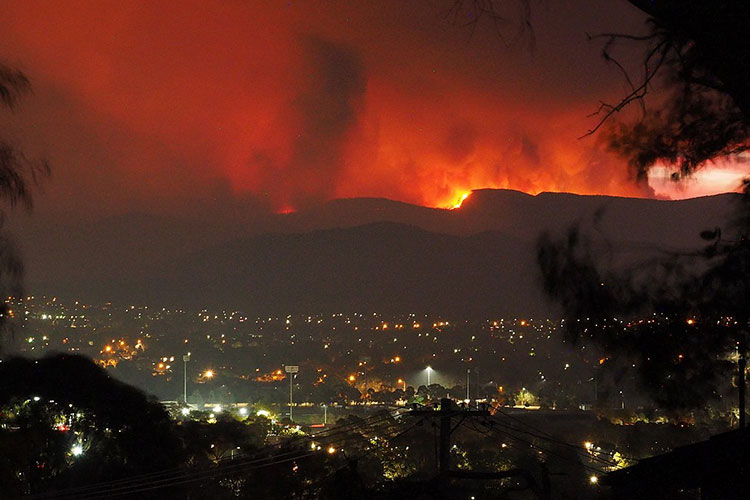Study: Without action, climate deaths could soar by century’s end

Rising temperatures driven by climate change could cause tens of millions of deaths per year worldwide by the end of the century, potentially matching the global death rate for all infectious diseases combined, according to a new study led by Solomon Hsiang, a climate policy researcher at UC Berkeley.

The study, prepared by the Climate Impact Lab, reported that as greenhouse gas levels in the atmosphere continue to escalate, rising temperatures in the decades ahead could raise annual global mortality rates by 73 deaths per 100,000 people. By comparison, the current death rate for all infectious diseases — including malaria, tuberculosis and HIV/AIDS, plus diseases transmitted by ticks, mosquitos and parasites — is about 74 deaths per 100,000 people globally.
The working paper was published Monday, August 3 by the National Bureau of Economic Research. The Climate Impact Lab is a multi-disciplinary consortium that includes scholars from the University of Chicago, Rutgers University, Berkeley and the Rhodium Group, based in Oakland, California; the lab includes a number of Berkeley faculty and graduates, with Hsiang serving as co-director.
Hsiang, the Chancellor’s Professor of Public Policy at Berkeley’s Goldman School of Public Policy, emphasized that the mortal threat of climate change could no longer be considered an abstraction waiting far in the future.
“The global cost to human health from warming is likely to be profound,” Hsiang said. “We are studying the risk of death faced by our own children. Today’s 10-year-old fifth-grader will turn 65 in 2075, facing mortality risks from climate change every year of their retirement. Failing to address climate change is not that different from driving your kids around without a seat belt: you are putting their lives at risk.”
Michael Greenstone, an economist at the University of Chicago and co-author of the study, said the burden of a hotter planet will fall heavily on the world’s poorest people.
“Our data indicate that with the continued growth of greenhouse gas emissions, the temperature effects of climate change are projected to be five times deadlier than recent U.S. flu seasons,” Greenstone said. “In poor, hot countries, the heat may be even more threatening than cancer and heart disease are today.”
